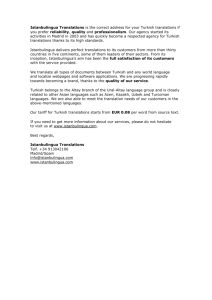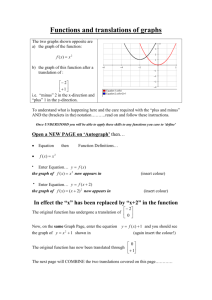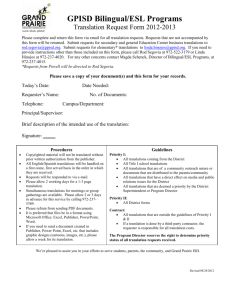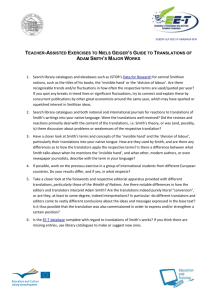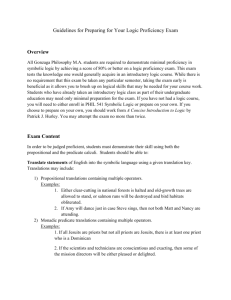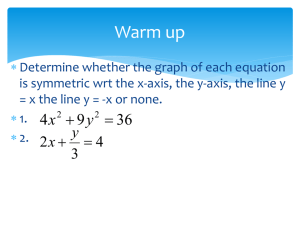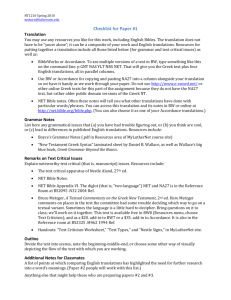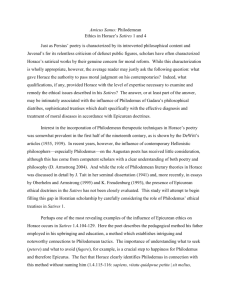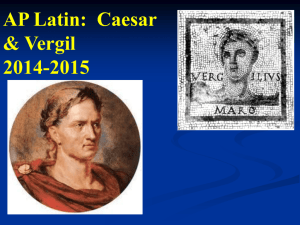Q1 - WhippleHill
advertisement
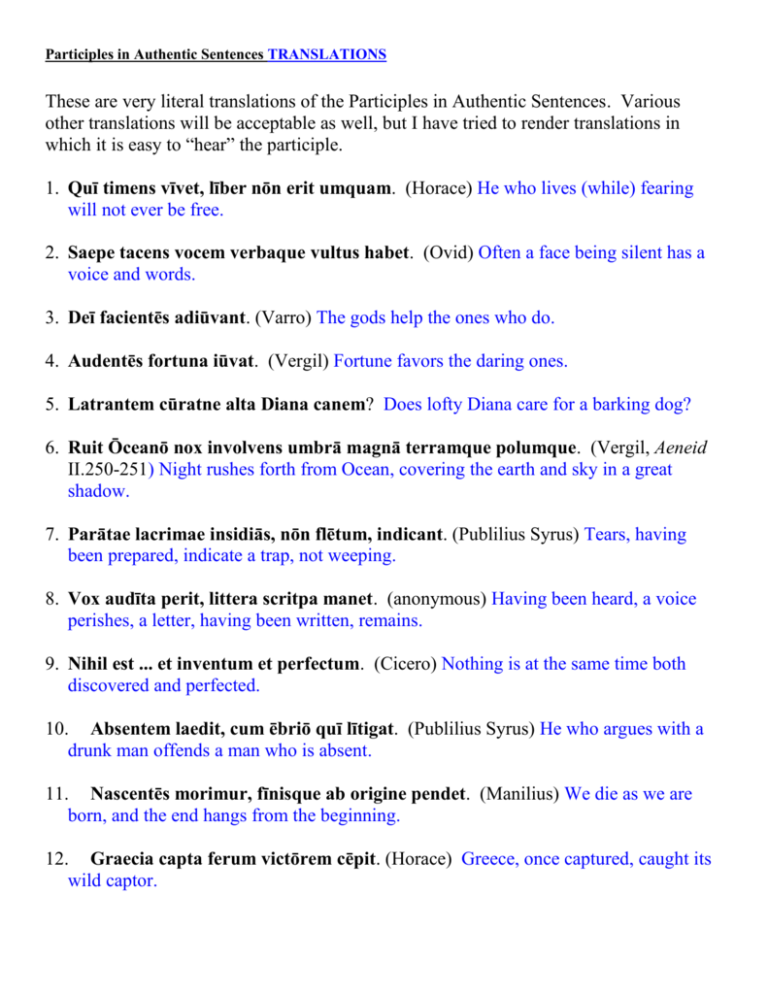
Participles in Authentic Sentences TRANSLATIONS These are very literal translations of the Participles in Authentic Sentences. Various other translations will be acceptable as well, but I have tried to render translations in which it is easy to “hear” the participle. 1. Quī timens vīvet, līber nōn erit umquam. (Horace) He who lives (while) fearing will not ever be free. 2. Saepe tacens vocem verbaque vultus habet. (Ovid) Often a face being silent has a voice and words. 3. Deī facientēs adiūvant. (Varro) The gods help the ones who do. 4. Audentēs fortuna iūvat. (Vergil) Fortune favors the daring ones. 5. Latrantem cūratne alta Diana canem? Does lofty Diana care for a barking dog? 6. Ruit Ōceanō nox involvens umbrā magnā terramque polumque. (Vergil, Aeneid II.250-251) Night rushes forth from Ocean, covering the earth and sky in a great shadow. 7. Parātae lacrimae insidiās, nōn flētum, indicant. (Publilius Syrus) Tears, having been prepared, indicate a trap, not weeping. 8. Vox audīta perit, littera scritpa manet. (anonymous) Having been heard, a voice perishes, a letter, having been written, remains. 9. Nihil est ... et inventum et perfectum. (Cicero) Nothing is at the same time both discovered and perfected. 10. Absentem laedit, cum ēbriō quī lītigat. (Publilius Syrus) He who argues with a drunk man offends a man who is absent. 11. Nascentēs morimur, fīnisque ab origine pendet. (Manilius) We die as we are born, and the end hangs from the beginning. 12. Graecia capta ferum victōrem cēpit. (Horace) Greece, once captured, caught its wild captor.

